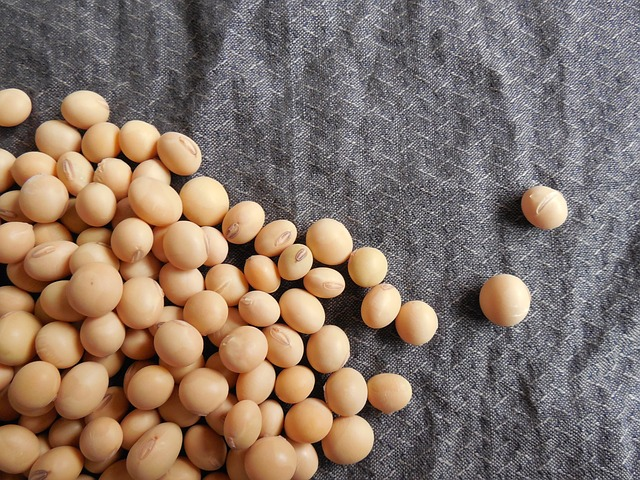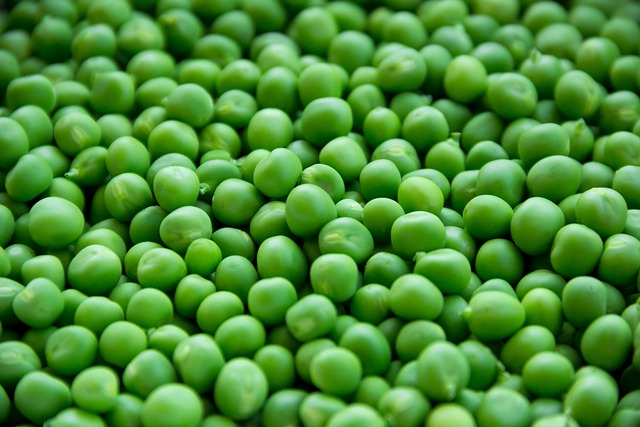
Is plant-based meat actually good for you? It's a valid question that many people are wondering, especially as the popularity of veganism and vegetarianism continues to grow. While there are some clear benefits to choosing plant-based options, it's important to do your research and make sure that you're getting the best possible nutrition for your needs. Let's take a closer look at the pros and cons of plant-based meat.
Meat alternatives are made of a wide variety of ingredients, like soy protein concentrate or vital wheat gluten

Plant-based meat alternatives are becoming increasingly popular as people shift towards more sustainable and healthy diets. These alternatives offer a great way to enjoy the flavor and texture of traditional meat without the environmental impact. Popular plant-based meat alternatives include tofu, tempeh, seitan, jackfruit, and pea and soy-based products. With all these options, it's easy to find something delicious and satisfying to replace meat in your favorite recipes.
Tofu

Tofu is a traditional food that has been eaten in China for over 2000 years. It was first mentioned in a Chinese document from the Han Dynasty (206BC-220AD). It is made from soybeans that are boiled, mashed and then mixed with a coagulant, such as sea salt or a mineral salt. The mixture is then pressed into blocks and allowed to cool. Tofu was introduced to Japan in the 8th century and is now a staple in many Asian countries. It is also gaining popularity in Western countries as a high-protein, low-fat, vegetarian-friendly food.

Tofu is a great alternative to meat for those looking for a vegetarian or vegan diet. It is a high protein, low-fat food made from condensed soy milk. Tofu is also high in calcium, iron, and other minerals. It is a versatile ingredient that can be cooked in a variety of ways, from stir-fries to scrambles. Tofu can be a great source of healthy, plant-based nutrition and can be a tasty addition to any meal.
Tempeh

Tempeh is a traditional Indonesian food made from fermented soybeans. It has been around for centuries and is believed to have originated in Indonesia, where it is still a popular food today. It is high in protein and is often used as a meat substitute in vegetarian dishes. Tempeh is also used in various Asian cuisines, such as Chinese and Vietnamese. It is now gaining popularity in the Western world as an alternative to tofu and other meat substitutes.
Tempeh is a healthy food choice because it is high in protein, fiber, and vitamins. It is also a complete source of protein, meaning it contains all the essential amino acids. It is a good source of magnesium, phosphorus, zinc, and iron, which are all important for good health. In addition, it is low in fat and cholesterol-free, making it a great choice for those trying to watch their weight. Tempeh is also easy to digest and a good source of probiotics, which can help promote a healthy gut microbiome.
Seitan

Seitan is a traditional food in Japanese and Chinese cuisine that has been eaten for centuries. It is made from wheat gluten, which is the main protein component of wheat. Although the exact origin of seitan is uncertain, it is believed to have been first made in ancient China, where wheat gluten would be cooked in broth and then used as an alternative to meats. In Japan, seitan has been an important part of Buddhist cuisine, as it is a vegetarian source of protein. It has become increasingly popular in the Western world in recent years as a vegan and vegetarian alternative to meat.

Seitan is a great alternative for those looking for a plant-based source of protein. It is made from wheat gluten and is a complete protein, containing all 9 essential amino acids. It is also low in fat, cholesterol-free, and contains iron, magnesium, and phosphorus. Seitan has a chewy, meat-like texture and can be used in a variety of dishes. It is a great source of vegetarian-friendly nutrition and can help improve overall health. We wrote about seitan here!
Jackfruit

Jackfruit is an increasingly popular meat alternative that is gaining recognition for its unique flavor and texture. Rich in fiber, vitamins and minerals, jackfruit is a great meat alternative. Its unique texture and flavor makes it a great alternative for pulled pork, tacos and more. Additionally, it is naturally low in fat, making it a healthier option for those looking for a meat alternative. However, jackfruit is low in protein and is not nutritionally similar to meat for a plant based diet.
Soy-based burgers

Soy-based meat products are a great alternative to traditional animal-based meats. They are made from soy protein, which is a plant-based protein, and are typically fortified with vitamins and minerals. Soy-based meat products are high in protein, low in saturated fat, and cholesterol-free. They are a great way to add plant-based protein to your diet while still enjoying the taste and texture of traditional meats.
Many plant-based meat products are made with varying combinations of pea, soy, and wheat protein

Plant-based meat products are becoming increasingly popular as an alternative to traditional animal-based meat products. These products are made from plants such as soy, wheat, and pea proteins and are designed to look, cook, and taste like meat. Plant-based meat products offer a healthier and more sustainable option for those looking to reduce their consumption of animal-based foods. Not only do these products offer a healthier alternative for consumers, but they also help reduce the environmental impact of food production.
As plant-based meat surges in popularity, so too does the debate around whether meat alternatives should be considered healthier than regular meat
On one side, plant-based proteins are generally seen as being lower in saturated fat and higher in plant-based nutrition such as dietary fiber and iron. However, on the other hand, many plant-based alternatives also contain relatively high levels of sodium and may not necessarily provide more health benefits than their animal-based counterparts. With both sides of the argument having valid reasoning, it can feel like a complex issue to navigate – ultimately leaving it up to individual choice when deciding how much meat or processed plant proteins they wish to include in their diet.
Plant-based meat is generally lower in saturated fat and cholesterol, and can be a good source of protein
If you've been curious about items from plant based meat production, then it's likely because of the potential health benefits associated with eating them. The primary benefit of plant-based meat is that it's generally lower in saturated fat and cholesterol than conventional animal meat. Additionally, many of them contain plant proteins such as vital wheat gluten, soy protein concentrate, and pea protein. As such, they can be a great alternative to traditional types of meats for those looking to reduce their saturated fat and cholesterol intake while still getting adequate protein. We talked about plant-based iron here, this is one way to utilize fake meats in your daily menu. For people looking to eat more healthfully and sustainably, plant-based proteins are an excellent choice.
However, some plant-based meat can be high in sodium and calories, so it's important to check the labels

The burgeoning plant-based meat industry has quickly turned heads with its ever-growing flavor profile, yet sodium and calorie content are commonly overlooked. Weighing in on this topic, it's important to exercise caution when picking up a package of "soy-free burgers," for instance. Since some of these heavily processed plant-based meat substitutes can offer quite an unhealthy sodium punch, label checking is recommended to ensure that sodium intake remains under control. From Beyond Burgers to Impossible burgers, sodium content can vary significantly - making those few extra minutes reading labels worthwhile!
Regular meat may offer some benefits that plant based meat does not

For example, ground beef is a high-protein, high-fat food, while veggie burgers are typically lower in fat and protein. Ground beef is an excellent source of iron, vitamin B12, and zinc, but veggie burgers are usually fortified with these same nutrients. Ground beef is also a good source of omega-3 fatty acids, while veggie burgers contain virtually no omega-3 fatty acids. We talked about the benefits of omega-3s here. In comparison, veggie burgers are often higher in fiber and vitamins A and C than ground beef.
The debate around plant-based meat is still ongoing, and it may never be fully resolved
In conclusion, both real meat and plant-based meat have their advantages and disadvantages. Real meat is typically higher in protein and contains essential vitamins and minerals that are not found in plant-based meat. However, plant-based meat offers a healthier alternative to real meat as they contain fewer calories, less saturated fat, and no cholesterol. Additionally, other meat alternatives are better for the environment, as they require fewer resources to produce and produce fewer greenhouse gases. If you are on a vegan diet, the answer is clear, but otherwise it is up to the individual. Ultimately, the decision between real meat and plant-based meat should be made on a case-by-case basis, depending on the individual's dietary preferences.
This article may contain affiliate links. As always, please consult with your medical professional any time you begin a new exercise routine, or supplement, or diet.
Comments
Post a Comment